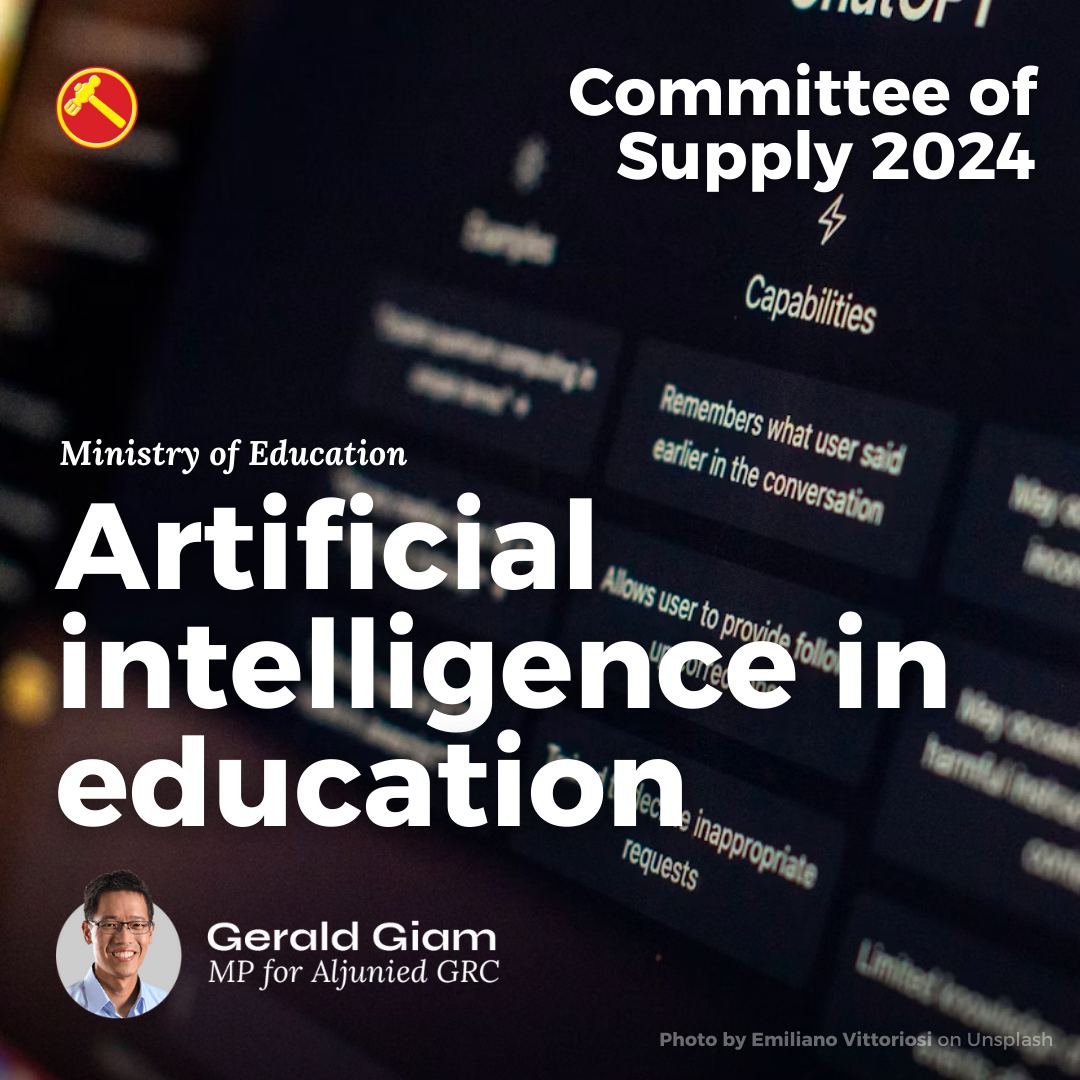My speech during the Committee of Supply debate on the Ministry of Education’s budget, 1 Mar 2024.
Given the increasing demand for AI skills in the workforce, it is crucial to help our students develop not just good foundations and fundamental skills, but also become proficient in using common AI tools.
For example, all students need to be taught how to correctly input prompts into generative AI tools like ChatGPT to get their desired output. They also need to be taught how to check for hallucinations, avoid plagiarism, and adhere to ethical and legal boundaries, so that they can use these technologies safely and responsibly.
I emphasise that this needs to be taught to all students, starting at the primary and early secondary levels, and not just to those who sign up for AI student outreach programmes or in individual schools on an ad hoc basis.
More well-resourced families often enrol their children in AI enrichment classes to enhance their digital skills, while lower-income families have less access to them, creating a digital divide across socioeconomic groups.
Unequal access to AI education could exacerbate existing inequalities, leaving some ill-prepared for an AI-driven world. This is why we need to bridge this gap by making dedicated AI education a fundamental component of the national curriculum.
We must also invest in more professional development for teachers to equip them with the skills to incorporate AI into the classroom.
Lastly, while AI tools are important, impassionate machines cannot replace an inspirational and empathetic teacher. Therefore, AI tools should always augment, not replace teachers. By doing so, we can combine technology and traditional teaching, to build a holistic and comprehensive educational experience for each student.
